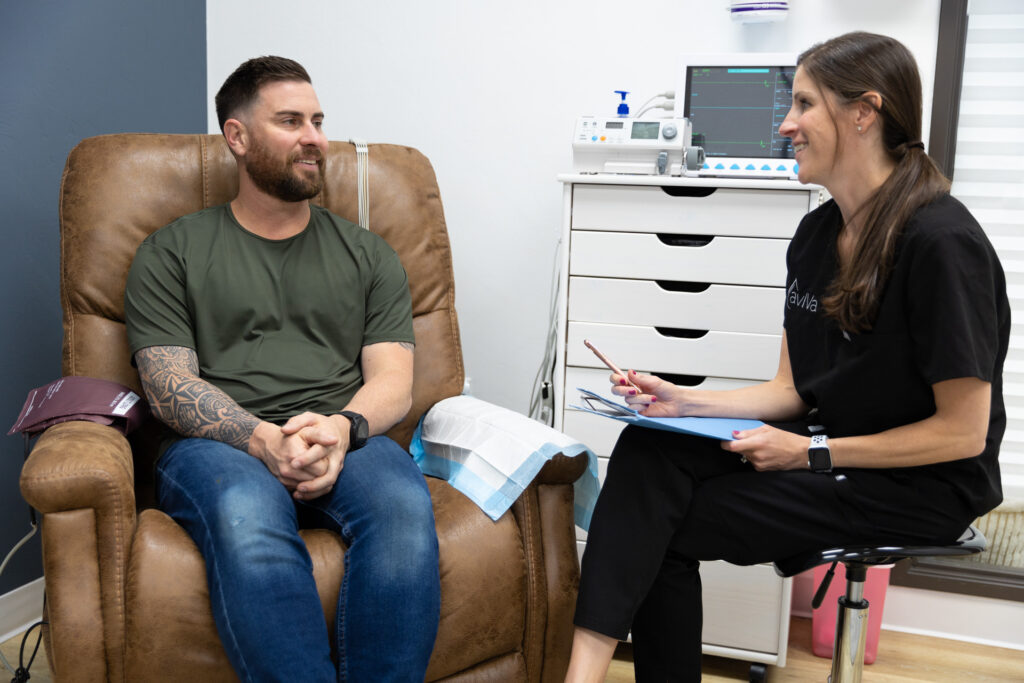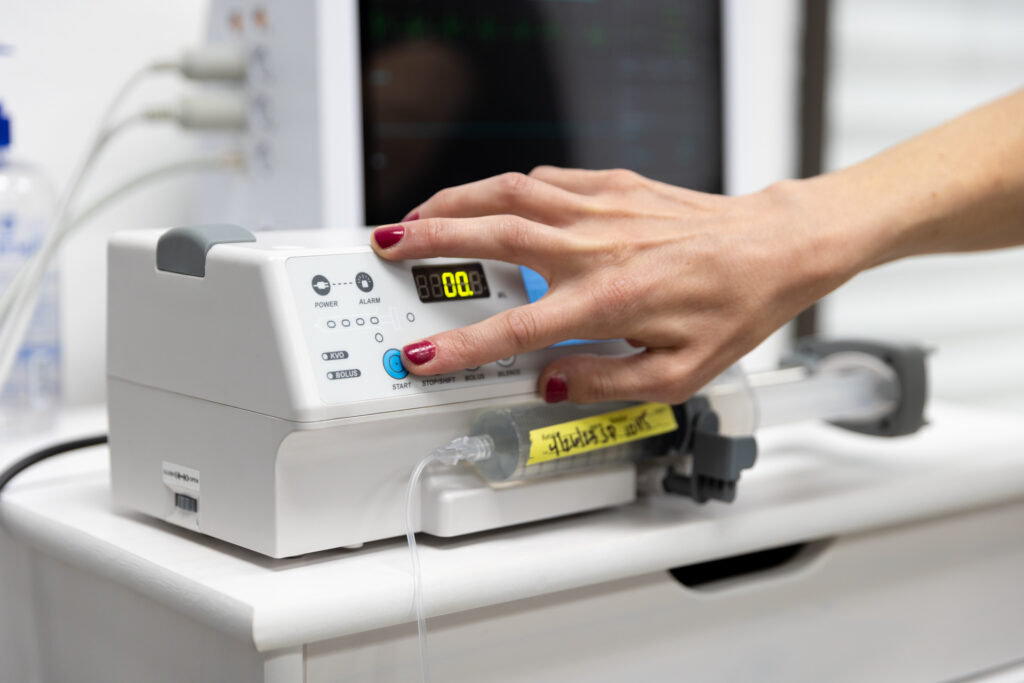Ketamine for Bipolar in Green Bay
A New & Innovative Treatment for Bipolar Disorder
Kick start your mental health at avIVa Infusions
Ketamine for Bipolar Treatment
What doctors are calling a promising novel therapy for bipolar disorder and depression.
At avIVa Infusions, we are proud to offer the latest in mental health treatment options.
In addition to high levels of safety standards and patient care, avIVa Infusions utilizes ketamine infusion therapy for the treatment of bipolar disorder as well as other mood disorders like depression, anxiety, and PTSD.
Our mission statement at avIVa Infusions is to provide personalized, high-quality management options for people struggling with treatment-resistant conditions. Ketamine infusions have proven to be a powerful and rapid treatment for bipolar disorder and other mental health conditions.
Treatment Details
Consultation Required?
Yes
Downtime:
Unable to drive for 12 hours
Sessions Needed:
6 loading doses
Results Duration:
One infusion booster every 4-12 weeks
What it Treats
Treatment-resistant depression
Suicidal ideation / suicidal thoughts
Insomnia / changes in sleep patterns
Lack of appetite
Trouble focusing
Feelings of emptiness, sadness, and hopelessness
Loss of interests in hobbies
Ketamine therapy for Bipolar Treatment in Green Bay
Effective Against Depression
Ketamine for depression treatment offers fast and efficient relief from the symptoms of clinical depression, with up to 75% of patients reporting a positive response to just a single ketamine infusion.
Fast Relief
With traditional bipolar disorder treatments like antidepressants, it can sometimes take weeks or even months before symptom relief is experienced. Ketamine is an inspiring treatment option because in some cases it can provide relief from symptoms within days or even hours.
Minimal Side Effects
Compared to traditional methods of treating bipolar disorder, ketamine infusions come with minimal side effects, if any. Your avIVa provider will review all potential physical and/or mental effects of ketamine infusions to ensure you are fully educated before treatment begins.

Lifestyle Changes & Ketamine Therapy
The Path to Healing from Depression
There are certain lifestyle changes that can be made that are very useful when combined with a treatment like ketamine infusion.
Be Honest With Providers
At avIVa Infusions, you will have a free consultation with an experienced physician who will tailor a treatment plan to meet your needs. Once you are cleared for ketamine therapy to treat your bipolar disorder, we will schedule your treatments and let you know everything about how to prepare and what to expect during and after.
Stay Consistent
An essential part of the healing process is to develop a healthcare plan and stick to it. Do not skip ketamine infusions, psychotherapy sessions, or neglect to take your prescribed medications. These treatments may take months at a time, and they may not alleviate all of your symptoms, but recovery takes time. Have patience and trust your healthcare providers.
Educate Yourself
To learn is to understand, and to understand it to heal. Learn as much as you can about your disorder so that you pick up new ways to combat it. Your family and friends can also become educated on the nature of your symptoms so that they too can help understand and help you towards feeling better.
Keep a Journal
You should also work with your therapist and/or healthcare provider to learn what triggers your symptoms. It may help to keep a journal so that you can discover patterns in your manic or depressive episodes. This way, with the help of your therapist and/or healthcare provider, you can formulate a plan on what to do next time one of your symptoms begins to show.
Take Care of Yourself
It’s important to keep in mind that while alcohol and/or drugs may help reduce the pain of bipolar symptoms temporarily, they will only create more problems and worsen your symptoms in the long run. It also carries the risk of making your illness harder to treat.
Eat Well
Beyond this, try to make sure you’re eating healthy whenever possible, as well as making physical activity a priority. It can come in the form of walking, jogging, swimming, working in the garden, or cycling. Also, try your best to keep a consistent sleep schedule. These activities combined can help you feel some relief from your symptoms.
Frequently Asked Questions
- What is bipolar disorder?
-
Bipolar disorder, sometimes referred to as bipolar depression or manic depression, is a mental health condition characterized by extreme mood swings of emotional highs (known as mania) and lows (known as depression).
During periods of depression, you may experience feelings of sadness or hopelessness, and you may lose interest in your hobbies. When you experience periods of mania, or the less extreme form called hypomania, you may feel euphoric or energetic. These extreme mood swings affect sleep patterns, energy levels, behavior, and your ability to think clearly.
These mood swings typically only occur a few times a year, but bipolar disorder is nevertheless a lifelong condition that cannot be “cured” in the traditional manner of speaking. Fortunately, there are treatments both old and new that can provide relief from symptoms.
- What are the types of bipolar disorder?
- How soon will I feel relief after a ketamine treatment for depression?
-
Ketamine for depression treatment offers fast and efficient relief from the symptoms of clinical depression, with up to 75% of patients reporting a positive response to just a single ketamine infusion. In some cases, it can provide relief from symptoms within days or even hours.
- Is ketamine therapy painful?
-
Ketamine therapy is not painful. While this treatment for depression does require a needle, the needle is small, insertion is fast, and patients report minimal-to-no discomfort.
Get Started
Tell us more about you and your needs using our Virtual Consultation Tool.
Input your concerns, and we’ll provide custom treatment recommendations for your unique needs.


